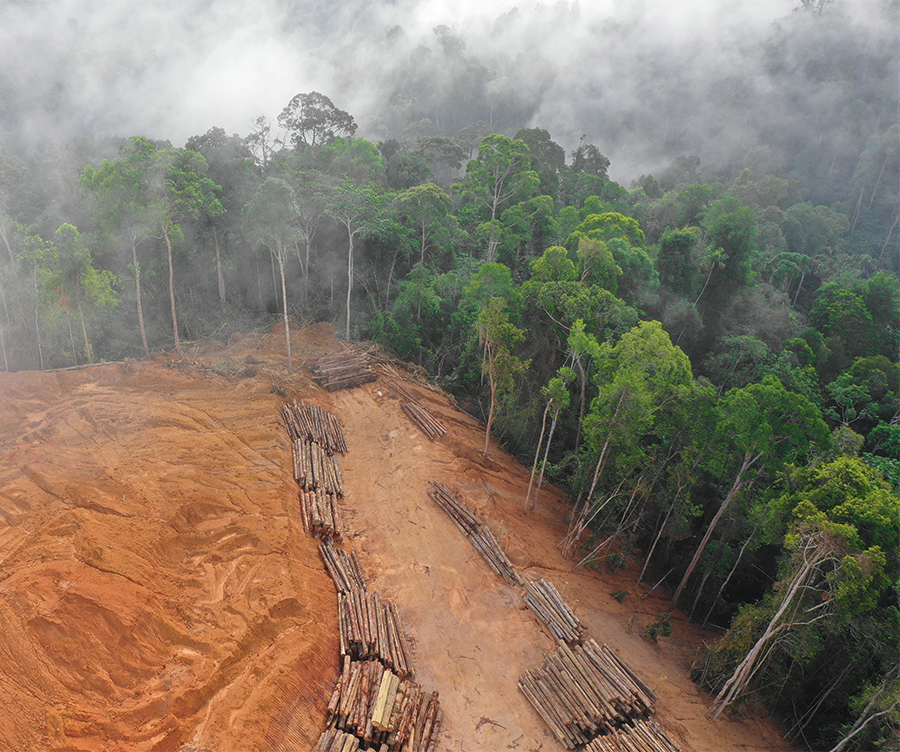The European Union will delay the implementation of a landmark deforestation law that is set to place heavy due diligence requirements on importers and commodity traders.
The provisions of the EU Deforestation Regulation (EUDR) were supposed to apply from December 30 this year, but on November 14 the European Parliament approved a one-year delay originally proposed by the European Commission and member states.
“This additional time would help operators around the world to implement the rules smoothly from the start without undermining the objectives of the law,” a statement from the Parliament says, noting that micro, small and medium-sized enterprises (MSMEs) will receive an additional six months to prepare for the law. 371 lawmakers voted to support the postponement, while 240 were opposed.
The regulation applies to EU-based importers, processors and traders of palm oil, cattle, wood, coffee, cocoa, rubber and soya, as well as some derived products, such as chocolate and furniture.
Companies in scope of the law will have to be able to prove these commodities do not originate from recently deforested land and have not contributed to forest degradation since 2020, including by tracing shipments to the plot of land they were grown.
The conversion of forests to agricultural land contributes to climate change by slashing carbon absorption capacity, as well as damaging biodiversity.
Parliamentarians also voted through a proposal to exempt from due diligence any commodities imported from countries that are deemed to pose no deforestation risk at all.
That change, proposed by the Parliament’s largest bloc, the centre-right European People’s Party (EPP), will have to be negotiated with the Commission and member states.
Ahead of the vote, a coalition of non-governmental organisations and consumer goods companies called on the parliament to reject delaying or “re-opening” of the legislation.
“Changing the content of the EUDR after the several years of preparations our companies have made would serve only to impede the smooth passage of the proposal, increase uncertainty and jeopardise the significant investments companies have made in preparing for its application,” read a statement signed by Ferrero, Mars Wrigley and Unilever.
After the vote, environmental groups accused lawmakers of watering down the legislation.
“It’s a deeply worrying sign that national governments and parliamentarians are pushing to riddle this law with loopholes and delay it rather than speed it up, so we’re calling on the EU Commission to withdraw the delay and get the law back on track to enter into force this January,” said Giulia Bondi, a senior forests campaigner at Global Witness.
Greenpeace branded the delay and introduction of the “no risk” category as “shameful”.
“Companies and third countries have been preparing for this law since its adoption last year,” says the campaign group’s EU forest policy director Sébastien Risso. “The EPP’s abrupt abandonment of principle, just weeks before the law kicks in, threatens to undermine the trust in the EU’s ability to provide a stable legal environment for businesses and investors.”
The Commission and European Council, which is made up of member state representatives, mooted a 12-month delay in October. They said it would allow “certainty, predictability” and sufficient time for implementation of the rules, including the establishment of due diligence systems.
“Since all the implementation tools are technically ready, the extra 12 months can serve as a phasing-in period to ensure proper and effective implementation,” the Commission said at the time.
The legislation has been criticised by major soft commodity producers such as Brazil, Malaysia and Indonesia, which have argued it will severely disadvantage smallhold farmers and discriminates against emerging economies.
A “no risk” category would also exempt many EU member states, which are already largely deforested.
Under the legislation, non-compliant businesses risk fines of up to 4% of total annual EU-wide turnover for the previous financial year.







